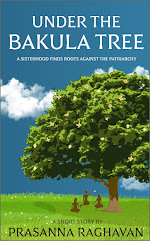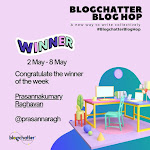J.M Coetzee is an award-winning writer who received Booker price twice, first in 1983 for his novel, 'Life and Times of Michael K' and in 1999 for 'Disgrace'. He won the Nobel Prize for literature in 2003.
The novel Disgrace is an allegoric interpretation of the social and political situation in post-apartheid South Africa. The country gained independence from apartheid colonialism in 1994.
David Lurie, the protagonist in Disgrace, teaches Romantic poetry at the Technical University of Cape Town, South Africa. 'A man of his age, fifty-two, divorced, he has to his mind, solved the problems of sex rather well', meets Soraya a prostitute, every Thursday. When Soraya stops seeing him abruptly, he seduces Melanie Isaac, his young student.
Lurie gets dismissed from the University for refusing to admit before the disciplinary committee that he was wrong in his action. ''Suffice to say that Eros entered. After that, I was not the same," was all his explanation and where lies Lurie's disgrace.
A Disgraced Lurie visits his lesbian daughter Lucy. She is in her middle twenties living alone in a smallholding, making a living out of growing vegetables and flowers, and selling them in a nearby farm stall in Salem in the Eastern Cape Province region of South Africa.
Then on a Wednesday morning, three Black men trick their way into their home, rapes Lucy, lock Lurie up in the lavatory, and burn him after dousing him in methylated spirit. They butcher Lucy's dogs using her rifle, rob household goods and escape in Lurie's car. In the car, Lurie had kept his work on Byran, a project on which he was planning to work.
Lucy reports the theft to the police station for the insurance claim but, to Lurie's surprise, not the rape. Lucy becomes pregnant with the rape child, but she doesn't abort it. Lurie suggests Lucy leaves the place to escape the horror of what has happened, which might repeat. But she doesn't buy his suggestions. Lurie's disgrace mounts.
And Lucy agrees to a proposal by Petrus, her Black 'gardener,' 'the dogman,' and related to the rapist from whom she becomes pregnant to marry her not to 'sleep with him,' but to have protection. Lurie is 'taken aback, astonished, and dumbfounded.' And Lucy gives her farm except for her home to Petrus as her dowry.
Disgrace is a socio-political novel with historical and racial undercurrents. It was published in 1999 when South Africa was basking in its childhood of democracy. Freedom, on the one hand, marked the demise of its White racist apartheid rule, and on the other, a new, liberal political undertaking for a better non-racial, non-sexist, rainbow nation.
In its childhood days, the rainbow nation did not progress well to match the progressive hopes and ambitions of its people- there were farm murdering, rapes, and violence.
The novel's plot and narratives obtained their latent energy from such a background, and it immediately spewed out political criticism for and against the rainbow nation.
The African National Congress, the national ruling party, submitted the novel to an investigation by the Human Rights Commission about racism in the media.
But according to literary critique, Disgrace does not present a story straightforwardly. It's a form of allegory open to interpretation, or it's a suggestive novel.
I read the novel twice, the second time in 2014, and by then, there was no possibility of South African White girls meeting with destiny as suggested by the novel. In post-apartheid South Africa, Interracial marriages of all races are not a browbeating matter- incidents of abuse in intimate relationships and gender-based violence happen among all races.
The novel, Disgrace, is written in a hard obscure style but a compulsive read for the crisp and incisive narrative style and precision in the language use.
http://www.theguardian.com/culture/2009/nov/28/disgrace-coetzee-film-malkovich-review
http://www.powells.com/review/2001_05_10.html.








0 comments
Post a Comment